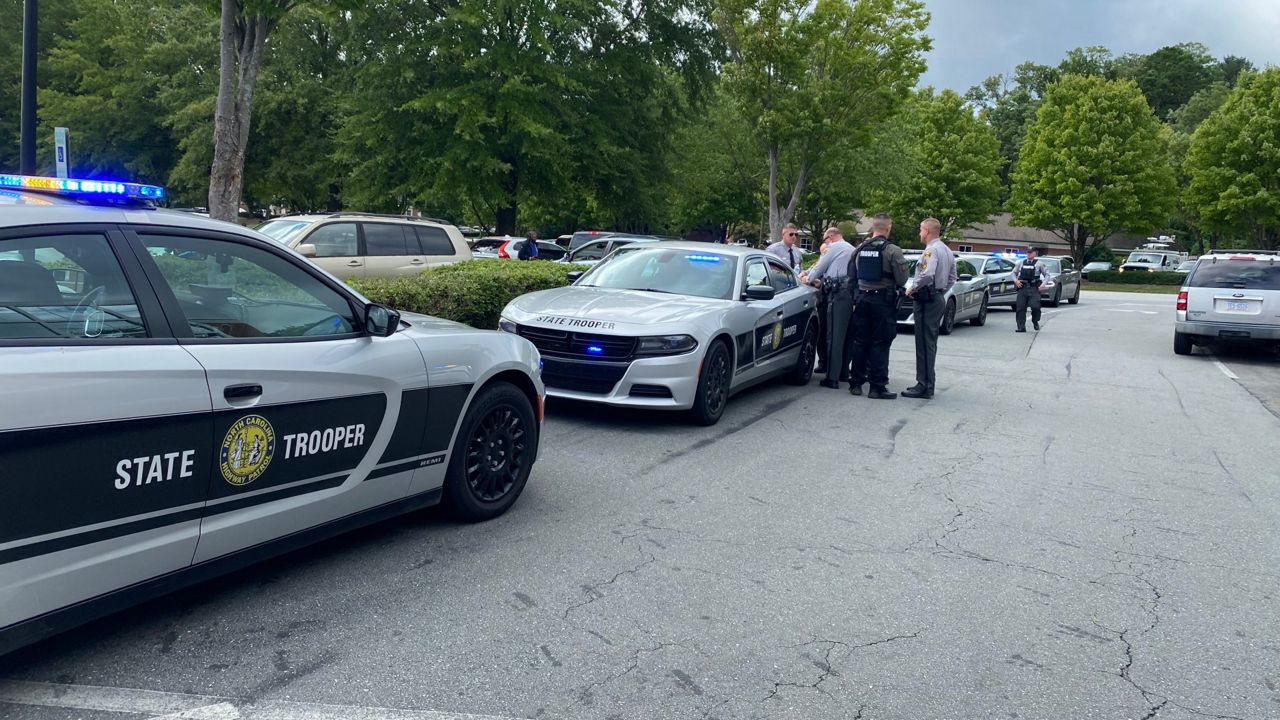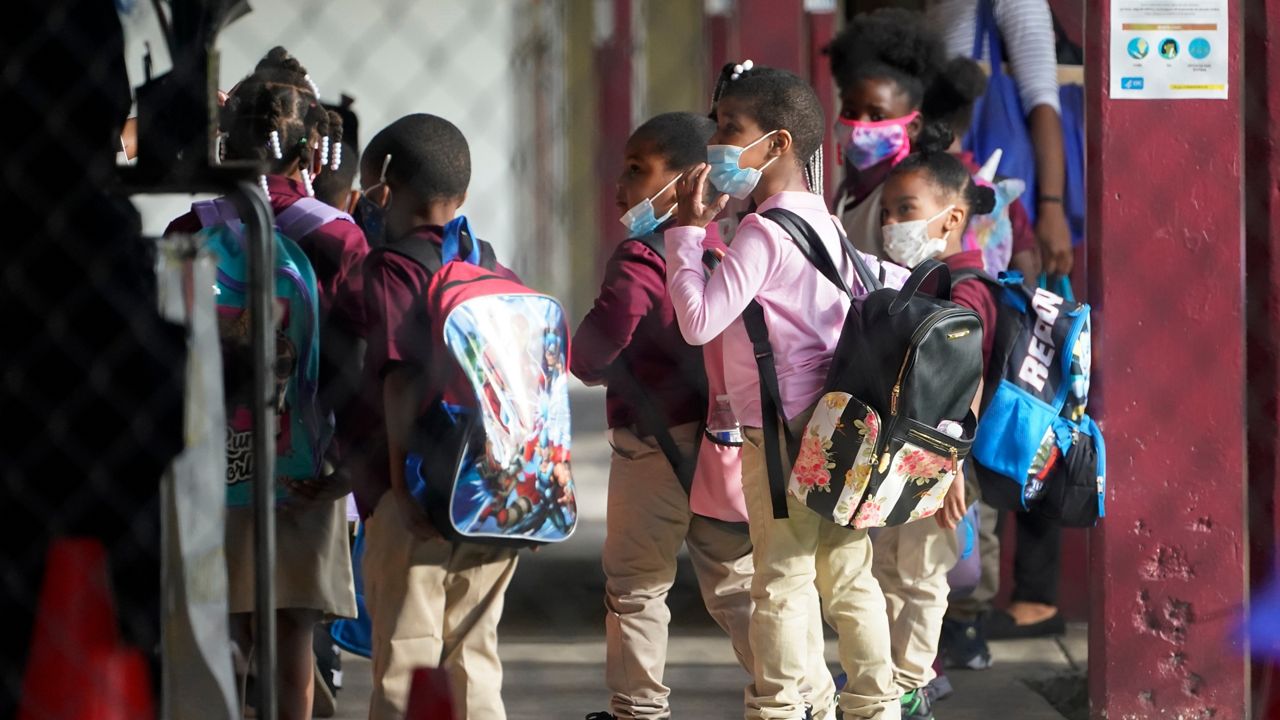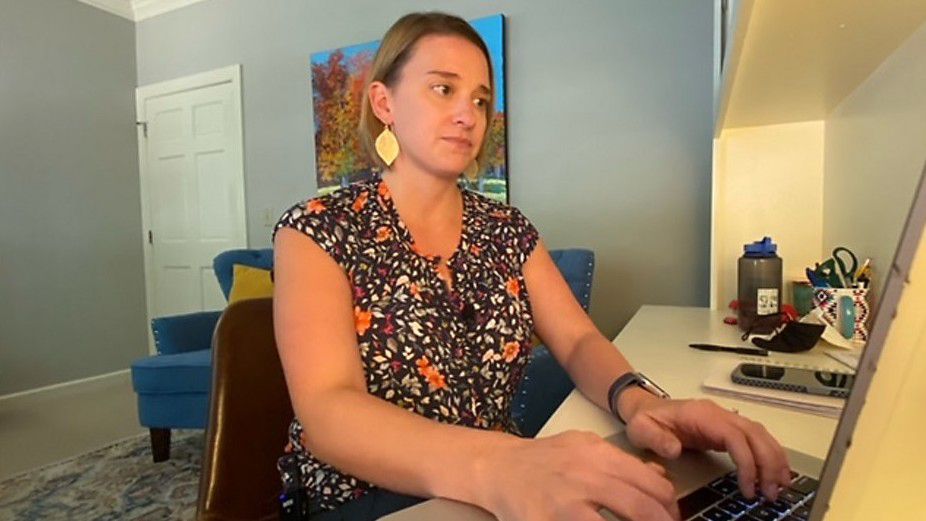If you are sending your child out the door to school, there’s a lot you have to think about.
Are they safe from COVID-19? Could someone walk into their school carrying a gun?
What You Need to Know
Emily King is a child and family psychologist
King says COVID-19 and school shootings are compounding impacts on the lives of school-aged kids
She says one issue is the lack of funding for mental health resources in schools across the country
A child and family psychologist said reality feels more bleak than once did.
Dr. Emily King said for some children, all they know is wearing masks.
“Some of them are very anxious. When is this going to end, and when is this going to be over? Some of them, depending on their age, don't remember a life before COVID-19. We need to be thinking about [how] we haven’t been doing this forever,” King said.
Absences are piling up for some students and teachers because of COVID-19 in schools around the state. As a mother of two sons in the Wake County School system, King said she is keenly aware of all the issues kids are facing.
“We just need to think about reminding kids that this is not going to last forever, and in a kid’s attention span this feels like it is going to last forever. It feels like that to some of us," Dr. King said.
As if that wasn’t enough, there have been two school shootings in the span of three days during the second week of classes in North Carolina. The first shooting was at New Hanover high school in Wilmington Monday. A second shooting turned deadly Wednesday at Mt. Tabor High School in Winston-Salem.

“When I say we can’t let school shootings become normalized what I mean is, yes, sadly school shootings have become normal, but if we allow it to become normalized then we get complacent, and we don’t keep pushing for change," King said. We have to keep reminding them that it doesn’t have to be this way. There are kids in this generation who go to school every day and know that this is a possibility.”
She has also put time and effort into addressing ways for parents to help their children through the use of Instagram. On the day of the latest shooting in Forsyth County, King spoke at length about how to talk to children about lockdowns in schools.
She is also a former school psychologist.
“That low-level fear that is constant every day, that this could happen. I remember where I decided I would hide when I was working in a high school as a young school psychologist. The situation didn’t have to happen for me to be worried about it,” King said.
In her five years working in schools in Houston, Texas, King saw how much resources are lacking for students.
“In my time as a school psychologist, I came to appreciate the mental health side of things. Even before COVID, we did not have enough school counselors and school psychologists,” King said.
A report by the American School Counselor Association details the average student to counselor ratio in high schools is 430 students to one counselor. Ideally, it should be no more than 250:1.
Now, there is a higher and more persistant need. Mental health in schools is the foundation of learning, according to her experience.
She said the biggest key for parents right now is to listen to their kids. ,
“The goal is not to help kids get rid of problems or to avoid problems. The goal is to help them understand the problems and know who to ask for help if they need help, and know how to solve it on your own and have the skills to do that,” she said.
Over the last 18 months, King has witnessed the deterioration of calm attitudes and the rise in anxiety for teens in her own private practice. She said teenagers last year were feeling total isolation, missing friends and doing their best to keep up with school in predominantly virtual classrooms.
“Over time we have been solving problems little-by-little, but it’s like a snowball. It keeps on rolling, and the problems with mental health are getting bigger and bigger,” the doctor said.
Younger children were missing out on making friends, enhancing social skills and sitting in classrooms where they typically learn better in-person.
“We need to do a little bit now, and it’s going to go a very long way in terms of not being reactive when there is a crisis,” she said.
We are paying the price by not spending more money on mental health in schools, she also said.
“Kids have kinda forgotten how to do school,” King said.
There are also some students who worry facial coverings are not enough. FDA Emergency Authorization has not been granted to the Moderna, Pfizer and J & J vaccines for children under the age of 12.
“I’m seeing frustrations with kids who are not being able to be vaccinated, but watching the adults in the community not make the decisions that could protect them by also not getting vaccinated,” King said.

Motherhood and listening to her patients has honed her skills more than the training she learned at the University of North Carolina-Chapel Hill, she said.
“I always say my kids taught me more than I learned in graduate school. My clients and my own children have taught me more in the last 15 years than I learned in grad school. So that’s why we have to keep learning from them and keep learning what would be most helpful for them and their families,” she said.
One good piece of advice she gives to other mothers and fathers is to tell their own children not to Google the answers they are looking for in real-life.
“Google doesn’t know you. Google cannot filter the delivery of information. You know your child and you know what’s going to trigger their anxiety and what’s not. You can adapt what you say and how you explain it to each individual child,” she said.



